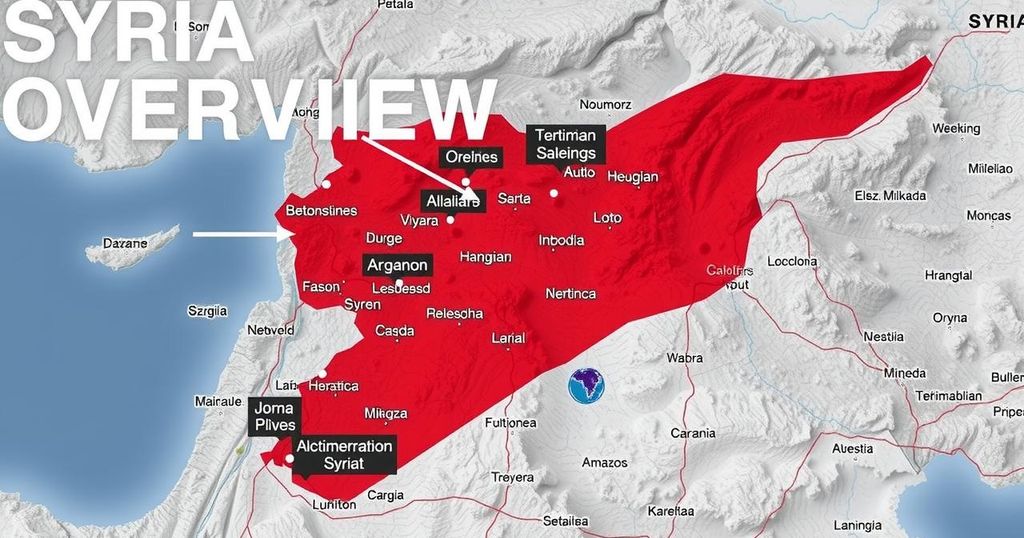The Syrian conflict has taken a dramatic turn as rebel factions, led by Hayat Tahrir Al Sham, have declared victory in their quest to unseat Bashar Al Assad’s regime, culminating in the capture of Damascus. This development followed a series of strategic territorial gains and the release of political prisoners, indicating a significant transition in the dynamics of the ongoing civil war that has persisted since 2011.
The conflict in Syria, rooted in the wider Arab Spring protests of 2011, has undergone a significant transformation with the recent achievements of rebel factions. On Sunday, the group Hayat Tahrir Al Sham (HTS) surprised both allies and adversaries of Bashar Al Assad by declaring the nation free from his regime. This momentous event followed the capture of key cities leading up to the capital, Damascus, which fell to rebel forces amidst reports of Assad’s potential flight from the country.
Initially struggling, President Assad’s grip on power had been reinforced by Russian and Iranian support. However, over recent years, a semblance of stability returned to Syria after the Syrian Army pushed back against the insurgents. The recent breakthrough began when the rebels, specifically HTS and the Free Syrian Army, successfully seized Aleppo, igniting a series of rapid territorial gains.
With minimal opposition, rebel forces overtook four critical cities—Daraa, Quneitra, Suwayda, and Homs—before reaching the capital. Notably, they gained control of Saydnaya prison, releasing political prisoners who had been detained under Assad’s rule. As they stormed into Damascus, they dismantled a regime that had persisted for over five decades, dating back to Hafez Al Assad’s rule.
Prime Minister Mohammad Jalali expressed the administration’s willingness to negotiate with opposition forces, urging citizens to protect public property amidst the chaos. Reports emerged suggesting Assad fled the country, although rumors of his plane being shot down remain unverified. Celebrations erupted in the streets of Damascus as HTS proclaimed liberation, although the political future of Syria now remains uncertain.
The Syrian Civil War, which commenced in 2011 against the backdrop of the Arab Spring, has involved complex interplays of domestic and international dynamics. The conflict began as peaceful protests demanding democratic reform but spiraled into a multifaceted war involving various factions and external state actors. For years, the Assad regime, bolstered by Russian and Iranian military support, successfully countered numerous rebel offensives, leading to a temporary stabilizing of Assad’s rule. Recent shifts in the conflict suggest a powerful resurgence of rebel factions, particularly HTS, indicating a critical juncture in the war that might redefine Syria’s future.
In conclusion, the recent developments in Syria mark a pivotal shift in the long-standing civil war, characterized by the surprise declaration of freedom from the Assad regime by HTS. The rapid territorial gains leading to the fall of Damascus represent a significant change in the power dynamics of the region. With key leaders expressing intentions to cooperate with opposition forces, the future of Syrian governance remains uncertain, but the movement toward liberation has ignited hopeful sentiments among the populace that may reshape the nation’s trajectory.
Original Source: www.hindustantimes.com






